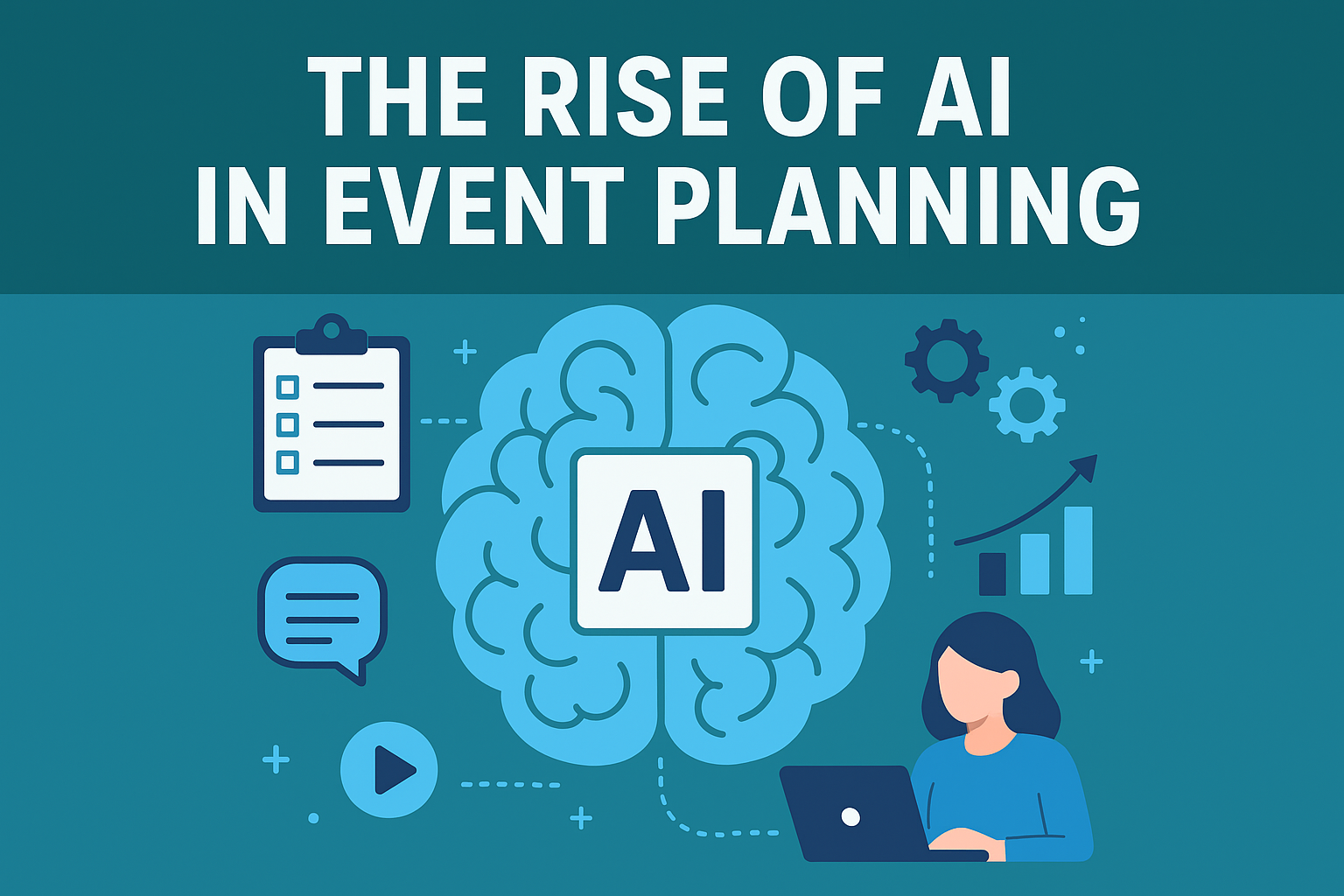The event industry has always thrived on creativity, coordination, and precision. But with growing expectations for seamless execution and personalized experiences, traditional planning methods often fall short. This is where artificial intelligence (AI) is making its mark. From automating tasks to creating data-driven insights, AI is transforming event planning into a smarter, faster, and more personalized process.
Automating Time-Consuming Tasks
One of the most significant advantages of AI in event management is automation. Planners often spend countless hours on repetitive tasks such as sending reminders, managing registrations, or scheduling vendor timelines. AI-powered tools can handle these tasks with ease, reducing human error and freeing up planners to focus on creative strategy.
For example, chatbots can instantly answer attendee queries, recommend sessions, or assist with travel information. This not only enhances attendee satisfaction but also saves organizers from dealing with repetitive communication.
Smarter Data-Driven Decisions
Events generate vast amounts of data—from attendee registrations and engagement metrics to post-event feedback. AI makes sense of this data by identifying patterns, predicting behavior, and suggesting improvements.
Imagine knowing in advance which keynote speaker will attract the most attendees, or which networking format will drive the highest engagement. With predictive analytics, planners can design events that align more closely with audience preferences, ensuring higher satisfaction and better ROI.
Personalized Attendee Experiences
Today’s attendees expect more than generic schedules—they want personalized experiences. AI can analyze attendee data to recommend customized agendas, suggest relevant sessions, and even connect participants with like-minded peers for networking.
For instance, an AI-powered event app could notify an attendee about sessions that match their interests or recommend exhibitors based on past interactions. This level of personalization not only boosts engagement but also makes attendees feel valued.
Enhancing Marketing and Outreach
Marketing an event is often as challenging as planning it. AI tools can optimize campaigns by identifying the right audience segments, recommending the best time to send promotional emails, and even personalizing messaging for different attendee groups.
Additionally, AI-driven analytics can track which ads or campaigns are performing best in real time, enabling planners to adjust strategies instantly. The result? Higher registration rates and stronger brand visibility.
Real-Time Problem Solving
Unexpected issues are part of every event. Whether it’s a last-minute cancellation, technical glitch, or sudden change in attendance, AI can help planners respond quickly.
For example, AI-powered monitoring tools can detect unusual patterns, such as overcrowding in a particular area, and suggest immediate solutions. Similarly, virtual assistants can reroute attendees or provide instant updates if schedules change. This reduces stress for organizers and ensures smoother experiences for participants.
Sustainability Through AI
Sustainability is becoming a key focus in event management, and AI can contribute significantly. By analyzing data, AI can recommend eco-friendly practices such as reducing food waste, optimizing energy usage, or minimizing printed materials. AI-driven virtual and hybrid event tools also cut down on unnecessary travel, reducing the overall carbon footprint.
The Future of AI in Events
As technology continues to evolve, the role of AI in event planning will only grow. Future applications may include advanced virtual reality experiences powered by AI, fully automated event management platforms, and even predictive models for attendee satisfaction.
For enterprises, adopting AI isn’t just about efficiency—it’s about staying competitive in a digital-first world. Those who embrace these tools will deliver smarter, more engaging, and more sustainable events.
Final Thoughts
AI is no longer a futuristic concept—it’s a reality shaping today’s event industry. By automating tasks, enhancing personalization, improving marketing, and enabling real-time problem-solving, AI is redefining what’s possible in event planning.
For event professionals and enterprises alike, the message is clear: the future of event planning is AI-driven, and the time to embrace it is now.

